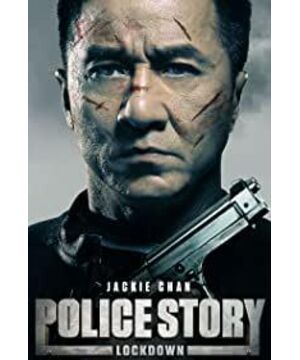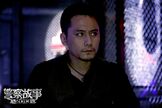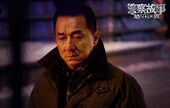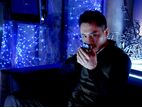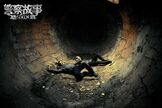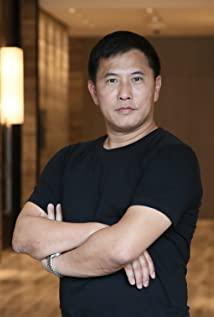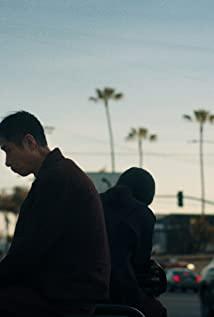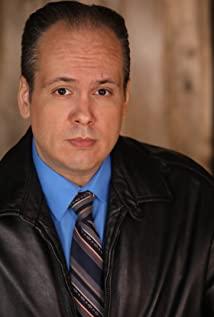If you want to accuse Jackie Chan of breaking his promise, I think it is well-founded. In "Police Story 2013", the old and strong Jackie Chan is still tossing and turning, punching to the flesh. He is definitely in the style of action movies, and although the investment is not too high, no matter from the cast, the ratio of gears or the final box office, To say that it is not a "giant system", it is difficult to convince everyone.
But if Jackie Chan has to defend himself seriously, he is not without words. First of all, compared with other "Long's" action films, Jackie Chan's action scenes in this film have indeed shrunk significantly, with literary dramas mainly, martial arts embellished, and the rhythm is completely different from before. Secondly, according to Jackie Chan himself, in the script he first received, there was almost no fighting in the film, and it was entirely based on acting skills. But after entering the crew, the director continued to increase the number of action scenes with deceit, and then made the film what it is now.
If what Jackie Chan said is true, I can't blame the director for not keeping his word. After all, no matter which director is in the hands of him, he will not be willing to let Jackie Chan's skill disappear. Let's go back to Police Story 2013. It can be said that "Police Story" is not only the series of works with the longest time span throughout Jackie Chan's acting career, but also its style evolution also witnesses Jackie Chan's personal and even the entire history of Hong Kong film development. From the early launch of "action comedy" in line with the trend of the times, to the promotion of the stage to Southeast Asia and even Russia in the golden age of Hong Kong films in the 1990s, it shows the confidence and general pattern of Hong Kong-made films during this period. Hostile forces have ranged from local to international criminal groups, and the name "Chen Jiaju" has become the "James Bond" in the hearts of Hong Kong people, especially in "Police Story 4: Simple Mission" filmed in 1996, it is obvious that director Tang Jili learned Or pay tribute to the traces of the 007 series.
After Jackie Chan entered Hollywood in 2004, he joined Emperor Entertainment and director Chen Musheng to "restart" the series. The joining of a group of beautiful men and beautiful women demonstrates the film industry that Hong Kong idols were in power during this period, and Jackie Chan, who is no longer young, finally gave the most dangerous and desperate scenes to Nicholas Tse, who was as old as his son, and abandoned action scenes at the same time. The witty and humorous elements in the series, playing a lot of bitterness and sadness, is the first time in this series to show his literary or acting skills.
After a lapse of 9 years, the new work has nothing to do with the previous five works except for the name, and even the stage has been changed from Hong Kong to Beijing. Jackie Chan's standard Mandarin is abruptly mixed into some Beijing accents, which seems a little unreliable. In addition to himself, from the director to the leading role, to the supporting roles, the complete mainland equipment also shows that this work is already a completely different story. The Hong Kong-flavored name of "Chen Jiaju" has now become "Zhongwen" with a more continental flavor. The only thing that remains unchanged is Jackie Chan, who still plays the role of the solitary hero who single-handedly saved the crisis.
Although at the beginning, in the form of flashbacks, it created the illusion that Jackie Chan will eventually commit suicide, but those who are familiar with his films know that the eldest brother has only "died" three times in his decades of film career. "Island of Fire" and the resurrected "Rebirth of the Flying Dragon", there is only one "Shinjuku Story" that really ended tragically in the movie starring him. "Immortal" has almost become another label for him besides "no substitute". (It is conceivable that when Jackie Chan passed away many years later, some media will use such news headlines - "Undying Jackie Chan, this time really dead")
So, we are not worried about his ending, the only thing to do , just follow the director's lens to see how he turns things around again.
Compared with the investment of only a mere 30 million yuan, the box office of more than 400 million yuan is enough for investors to make a lot of money. But compared to Jackie Chan's previous work "Zodiac", which surpassed one billion in the world, this film is not a big win in any case. The reason for the poor performance may be attributed to one point, that is, the loss of the selling point.
Bearing the name of "Police Story" and Jackie Chan, the audience who walked into the theater naturally expected a hearty battle between good and evil and a "dragon-style" humorous kung fu. However, the lack of fighting scenes in this film should have created a new low for Jackie Chan from film history. The eldest brother's look of bitterness and hatred also continued the path of sadness in "New Police Story", and the signature funny kung fu that made him famous was self-abolished. Although the introduction of MMA style in the design of martial arts is a major innovation, the setting of the protagonist Zhong Wen who misses the last face of his wife's death in order to solve the case is too high. The terrier is also really bad street. Therefore, it may be more appropriate to regard this film as a public security hero propaganda film with the main theme than the banner of "action suspense giant system" in the propaganda of the producer.
In fact, in terms of the overall structure and suspense setting, this film is somewhat like a Japanese-style reasoning movie, especially the taste of "Kindaichi boy": in order to find out the truth of the accidental death of a loved one five years ago. The mastermind tried his best to gather all the parties involved in a closed place that had lost contact with the outside world. Bit by bit, he awakened the dusty past. The sinners should be punished, but the main culprit always had a sympathetic and tearful expression. Difficulties... However, unlike the Japanese-style reasoning that pays attention to the creator and the audience's wits, this film lacks the sense of interactive participation. All clues are looming, and there is no room for the viewer to calculate the truth, but To be the kind of mystique needed for atmosphere shaping. And the final suspense was revealed. The girl's death was just a sacrifice for love because of a breakup. The director seemed to want to create a reversal effect of Agatha Christie's "everyone is guilty", but it turned out to be nondescript. This well-planned mastermind, Wu Jiang, also seems ridiculous.
Although the overall tends to be bland, the film still has an advantage that has to be mentioned. That is, in terms of structure, the entire story of the film is concentrated in just a few hours, the conflicts are concentrated, there are only a few enemies and only a few hostages. Compared with Jackie Chan's previous days, the pattern is a bit small. But the director turned this shortcoming into something to watch in several ways.
One is a solid play. Whether it was his anger when arguing with his daughter, or his composure when confronting the robbers, Jackie Chan completed the prescribed actions very well. Even if it wasn't outstanding, it was commendable for an action star who has always shown himself by force all his life. . Liu Ye changed from the dead end that every bad guy would fall into madness in the past, and interprets this cold and even a little refined bar owner to the bottom of his heart. Jing Tian, known as the box office poison, finally dedicates a role that can be called "acting" for the first time since filming, from the domineering non-mainstream Taimei at the beginning, to the filial daughter after taking off her dress, let people see her in the role. Under the flying scandal and beautiful appearance, there is still an actor's heart. The second is the use of flashback. Whether it is the flashbacks of several past case-handling experiences when Officer Zhong was suspicious of the identity of the other party, or Wu Jiang's memories of his involvement in underground black boxing, on the one hand, more than half of the action scenes were injected into the film, which originally lacked fighting scenes. It greatly enhances the capacity of the film in time and space, and on the other hand, it also creates a narrative foreshadowing for the shaping of characters and the step-by-step unveiling of the mystery. The third is that the protagonist and the police complement each other in strength and weakness. Before filming this film, the director may have had a good tutorial on "Die Hard 3". The protagonist is also trapped between kidnappers and hostages, but a large number of police outside dare not act rashly. There is even a bridge where the protagonist temporarily escapes from danger and goes to great lengths to return to the thief's lair. Although the police line did not play much role in the narrative, it did a good job of creating a tense atmosphere and dramatic tension.
Overall, Police Story 2013 should be given a passing grade. No matter in terms of the degree of completion or the degree of focus of the main creator, it should be better than another Lunar New Year film jointly produced by a bald uncle and a director of the Spring Festival Gala. Perhaps, when we walk out of the theater, our thinking should not be "Jackie Chan is old, can we still eat", but should be "If there is no Jackie Chan, what else can we watch"?
Almost thirty years have passed since the first "Police Story". And the "Dragon Girl" who often contrasts the "green leaves" with the image of delicate flowers, also from the protagonist's girlfriend, to his wife, to the current daughter. Jackie Chan hesitated to reiterate that this is really his last "big" action movie during the promotional campaign for the film. In fact, Hong Kong action film senior Liu Jialiang can still be in front of the camera at the age of 70. With his eldest brother's age, as long as he doesn't sacrifice his life as before, as a movie fan, he is still very willing to continue to witness him in front of the screen. skillful. After all, at a time when action stars are in short supply and kung fu superstars have become a scarce resource, there are really fewer and fewer action movies worth looking forward to.
What's more, the golden age of Hong Kong kung fu movies represented by Jackie Chan is an eternal memory of our generation.
View more about Police Story: Lockdown reviews


